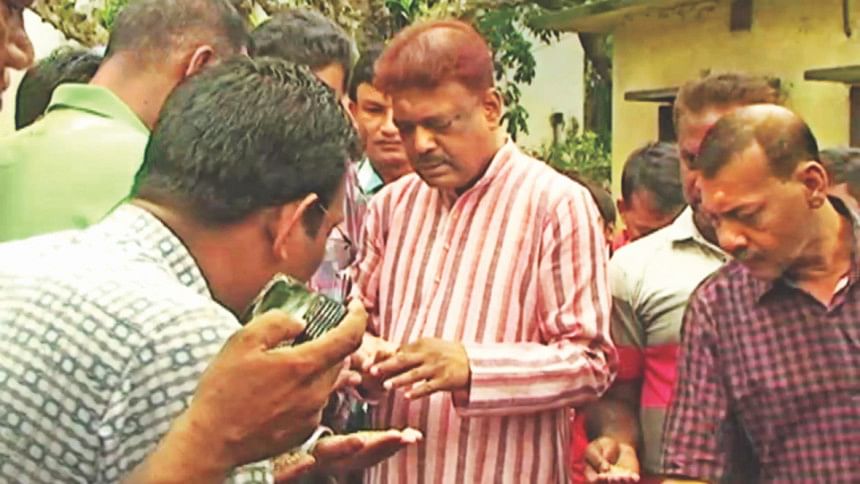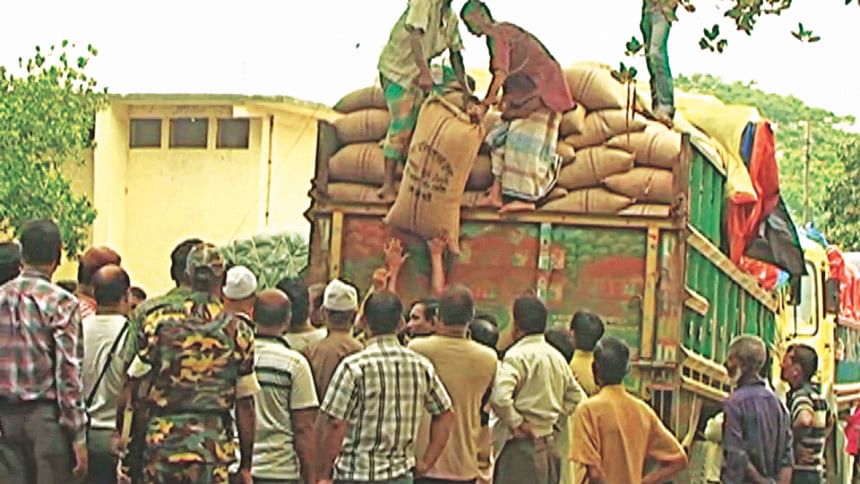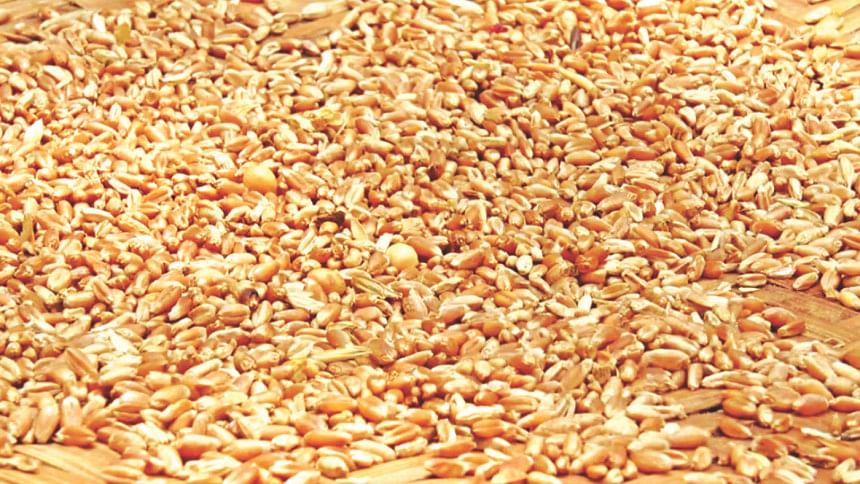Test, then store

A ruling party lawmaker in Kushtia yesterday stopped 500 tonnes of Brazilian wheat from being stored at a local warehouse on the grounds that the grains were substandard.
"I heard that the wheat was of substandard quality. That's why I did not let it enter the Kumarkhali warehouse without testing it properly," said Abdur Rouf, a lawmaker from Kushtia-4 constituency (Kumarkhali-Khoksa).
The consignment of wheat was sent to Kushtia on 14 trucks from Khulna.
After hearing the matter, the MP rushed to the spot. Around 100 ruling party leaders and activists accompanied the lawmaker when the incident took place, witnesses said.
"I'll not let the people of my constituency eat this wheat," Rouf told The Daily Star over the phone. He said he checked a sample of the grains and found it unfit for human consumption.

This measure was taken by a ruling party parliamentarian amid concern over whether the 2 lakh tonnes of imported wheat is suitable for human consumption.
On June 30, the High Court ordered the health secretary and the director general of the Directorate General of Food to report in three days whether the wheat was suitable for consumption.
The court order came after the Bangladesh Council of Scientific and Industrial Research (BCSIR) found the Brazilian wheat substandard.
The BCSIR said all the supplied samples of the imported wheat contained higher amount of shrunken and broken kernels than specified.

The state-run agency conducted the test after the food ministry claimed that the grains were found fit for human consumption. The ministry had carried out the tests at its lab.
However, neither the food directorate nor the BCSIR conducted any toxicity test to see whether the wheat was fit for human consumption.
Two contractors -- Netherlands-based Glencore Grain and Singapore-based Olam International -- supplied the grains to the food directorate earlier this year.
The wheat was used in the government's various safety net schemes, such as Test Relief (TR), Food for Work (FFW), Open Market Sales, and as rations for law enforcement agencies.
The police administration later complained about the low quality grains.
Sahabul Alam, in-charge of the warehouse, told reporters that the cereal was intended to be distributed for TR and FFW programmes. He added that he had already informed the higher authority of the matter.
While visiting the spot around 3:00pm, this correspondent found that six wheat-laden trucks were parked outside the warehouse and eight inside its compound.
In the evening, the trucks that were kept outside were allowed entry inside the depot area but no grain was unloaded from the trucks until 8:00pm.
Police personnel were deployed at the warehouse to ensure security.
Despite repeated attempts, District Food Controller Swapan Kumar Kundu could not be reached over the phone for comments. Regional Controller of Food in Khulna Kazi Nurul Islam also did not receive phone calls.
Contacted, Kushtia Deputy Commissioner Syed Bealal Hossain told this correspondent that he was not informed of the matter.

 For all latest news, follow The Daily Star's Google News channel.
For all latest news, follow The Daily Star's Google News channel. 



Comments